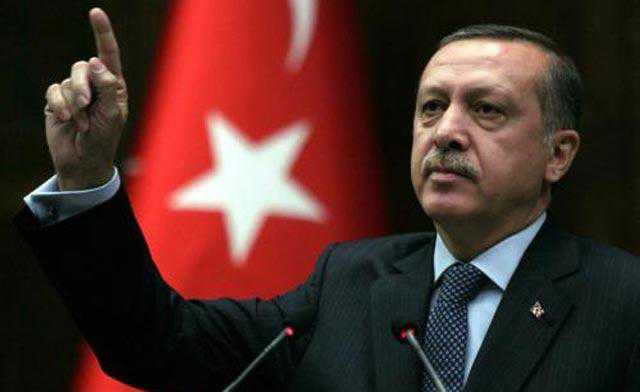By RAY MOSELEY
Al Arabiya London

Turkish Prime Minister Recep Tayyip Erdogan’s apparent political ambitions to become president with increased powers are not in the country’s interests because of his “dangerous intolerance of criticism,” The Economist’s European editor told a London audience on Tuesday.
The editor, John Peet, described Mr. Erdogan as possibly the most important Turk since the founder of the republic, Kemal Ataturk, but said his goal of creating a strong presidency, apparently with himself at the helm, are “somewhat worrying.”
He said Mr. Erdogan appeared determined to stay in power for a long time, hinting during the recent national election campaign that he hoped to be president in 2023, the 100th anniversary of the republic.
“His party and he have shown they are intolerant of criticism. They don’t like opposition,” Mr. Peet told a meeting of the Royal Institute of International Affairs. He noted that Turkey ranks 138th in the world in the international press freedom index. The Turkish Journalists Association says 58 journalists are in jail, more than in China.
Mr. Peet ranked constitutional reform as one of four principal challenges facing Turkey after Mr. Erdogan’s Justice and Development Party won last month’s elections, gaining 327 seats in the 500-member National Assembly. The other challenges are: keeping its fast-growing economy from overheating, finding an accommodation with the Kurdish minority and maintaining its foreign policy goal of zero problems with its neighbors.
The Economist has come under heavy criticism from Mr. Erdogan’s supporters because it endorsed the country’s main opposition party, the Republican People’s Party, in the recent election. Mr. Peet said he was surprised anyone in Turkey even noticed.
He noted that the Turkish economy has enjoyed “fantastic success” since the 2001 meltdown in which the government had to call in the International Monetary Fund. It now has the world’s 16th largest economy and could become one of the top 10, he said, moving from basket case to what he called the China of Europe.
But he said Turkey has a worryingly large current account deficit, the economy is overheating, unemployment remains just under 10 per cent and the country has been reluctant to embrace reforms in such areas as labor markets and minimum wages.
He acknowledged that the Constitution, a military-dictated document dating from 1982, needs updating but questioned Mr. Erdogan’s goal of a presidency based on the French model.
“The problem I have with Turkey is autocracy and intolerance of criticism,” he said. He noted that, after the election, Mr. Erdogan promised to work with the opposition on writing a new Constitution but has since become involved in controversy with opposition parties that refuse to take their parliamentary seats because some of their members have been jailed.
As for the Kurds, he suggested the government is better at conflict than conflict resolution. It has taken some helpful steps in appeasing the Kurds, he said, but Mr. Erdogan’s opposition to centralization is “worrying.”
Mr. Peet was largely complimentary of Turkey’s performance in foreign policy. After initial hesitation about how to deal with the Arab spring, he said, the Turks have recognized that the Arab world needs political change. “They are doing some good in Syria and other countries in the region,” he said.
The Turkish government’s traditional friendly relations with Israel soured after Israeli commandos stormed ships in the so-called Gaza Freedom Flotilla in 2010 and killed nine activists aboard the ship Marmara. Earlier, at the time of the Israeli attack on Gaza in 2008-09, Turkey was involved as an interlocutor between Israel and Syria, yet Israel gave the Turks no warning of the Gaza invasion.
Mr. Peet said that caused deep resentment in Turkey.
Turkey and Israel will never go back to their relationship of 10 years ago, he said, but it would be helpful if Turkey could play a mediating role between Israel and its Arab neighbors.
He said Turks recognize that their future is with the European Union, but their country’s prospects of joining the EU look “pretty remote” because of opposition from French President Nicolas Sarkozy and some other EU leaders. He expressed hope that Mr. Sarkozy would be toppled in French elections next year.
Turkey’s EU prospects might be improved by movement in resolving the Cyprus impasse, he said, but noted there is little sign of concessions by either Greek Cypriots or Turkish Cypriots. The United Nations may be tempted to give up trying to resolve the conflict, he said.
(Ray Moseley is a London-based former chief European correspondent of the Chicago Tribune and has worked extensively in the Middle East. He can be reached at [email protected].)
via Turkey’s ambitious Erdogan not a tolerant man. London Dispatch by Ray Moseley.

Leave a Reply